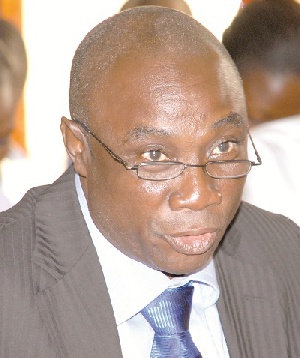Distorted tariff regime is a huge disincentive for investment in Ghana’s power sector, especially in the generation and transmission sub-sectors, according to the Ghana Growth & Development Platform(GGDP)
GGDP, an economic think-tank, stated that subsidized tariffs make it difficult for producers, particularly the independent power producers (IPPs) to achieve full cost recovery.
In its latest issue (CIN 8) released on the current energy crisis endorsed by Kwamena Essilfie Adjaye, Interim Chairman, the GGDP said the distorted tariff regime was forcing IPPs to request sovereign guarantees in power purchase agreements (PPAs), adding that that has deprived the sector of essential funds needed to undertake key upgrade.
It said on 11th February, 2013, IPPs that generated most of the thermal power in Ghana, cited under-pricing of utilities as one of their major concerns, They stated the under-pricing of utilities had affected their inability to meet set performance standards.
“The persistent under-recoveries have drastically affected their cash flows and undermined future capital budgeting and investment programmes to maintain and/or upgrade generation capacity. In short, the distorted tariffs set by the PURC are the major contributory factor to the under-recoveries by the IPPs, as they do not allow full cover of operational costs, including a capital recovery factor.”
It indicated also that the current load-shedding has been worsened by the refurbishment of TICO’s 220MW to upgrade it from single cycle to a 340MW combined cycle operation and repair of the 132 MW Takoradi T3 thermal plant (also known as TAPCO).
In a 2014 World Bank Report on Ghana’s energy sector, an audit report found that the performance of VRA plants at Takoradi did not meet international benchmark tests for reliability, though some improvements had been made from 2009-2010.
The GGDP further noted that the decrease in the rate of growth in 2014 was broadly attributed to energy supply constraints and rising input costs that reduced economic activity.
“Inadequate power supply makes Ghana lose an estimated 2-6% of GDP annually. Inadequate and unreliable power supply increases the cost of doing business, as businesses including those in the SME sector such as welders, tailors and seamstresses, restaurants and chop bars, and guest houses and motels, are forced to use expensive alternative fuel options.”
The Association of Ghana Industries (AGI) has indicated that several companies would be forced to lay off thousands of workers if the current energy crisis persists.
According to reports, Ghana would soon experience acute cement shortage due to the worsening power crisis.
The closing down of businesses would decrease government revenue, export revenue, the rate of the growth of the economy as well as weaken the Cedi.
It would also increase unemployment and contribute to the rise in the crime rate.
All these would make Ghana less competitive as an investment destination in the sub-region.
The platform added that VRA’s installed capacity of about 2,900 MW exceeds the country’s peak demand level of about 2,000 MW.
“The current level of production is about 1,500 MW, meaning that there is a shortfall of about 500 MW. Therefore, it should be clear that the current acute power shortage is the result of much deeper issues than the impression that has been created that it is due to a shortfall in generation capacity. And these deeper issues are the government’s precarious finances, poor maintenance of thermal plants, weather effects, and policy inertia on the part of the government,” it mentioned.
Business News of Tuesday, 17 March 2015
Source: Daily Guide
Tariff distortions ward off investors
Entertainment












